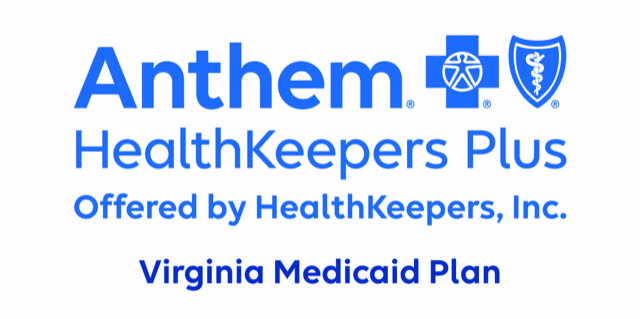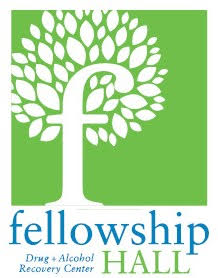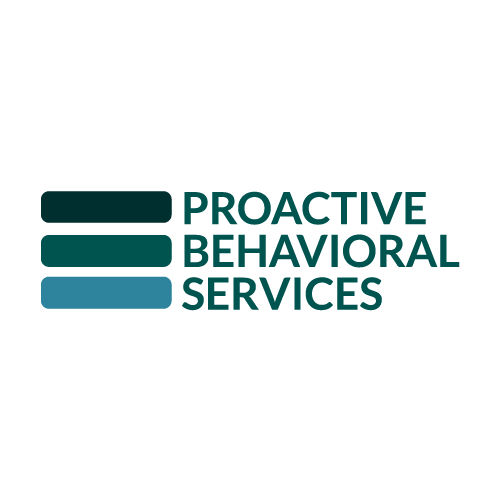Sunday | Monday | Tuesday | Wednesday
2024 Wednesday Schedule
7:30 to 8:00 AM
Nancy L. Johnston, MS, LPC, LSATP, MAC, NCC
“Morning Mindfulness: Mindfulness as a Treatment Foundation”
Level: Introductory
Limited: 30 Participants
Contact Hours: 0.5
Brief Description:
Come wake to the day and to the present moment. More than ever, we acknowledge the importance of our body in healing and recovery. Offering this care to yourself and learning how to offer it to your clients will greatly enhance your work. Whether you are new to mindfulness or are a seasoned practitioner, these experiential morning sessions offer the opportunity to learn and practice. Participants should come prepared for sitting meditation in chairs and gentle, mindful yoga both in chairs and standing.
Educational Objectives:
- Quiet your mind
- Relax your body
- Be in the present
- Experience connection with self
- Experience the value of this work in treating anxiety, depression, trauma, compulsions, obsessions, addictions
Session Presentation
The importance of mindfulness practices in our work with clients is established. With current understandings of neurobiology, we know that mindful breathing, stretching, and body scanning can help the amygdala to quiet. This reduces our fight or flight responses. This calming the amygdala then gives us greater access to our prefrontal cortex which enables us to think more clearly and rationally.
A study in the Journal of the American Medical Association (November, 2022) found that participation in Jon Kabat Zinn’s Mindfulness-Based Stress Reduction program (MBSR) was as effective as anti-anxiety medications.
In treating trauma, we have learned to offer both bottom-up and top-down strategies for our clients’ healing. Bottom-up strategies include breath and body practices which help to calm and center self. Improved access to self can follow.
In this 30-minute session, I will offer information about mindfulness as a foundation of addiction treatment. Then we will move into simple mindfulness practices for body, breath, and senses for you and your clients. I will share mindfulness-based readings and instructions as we settle into silence and calm.
Participants can experience the physical, emotional, and spiritual changes available through this work and can see its value for themselves as well as for their clients.
Themes Addresses: Skills Training.
8:15 to 11:45 AM
PLENARY:
Jessica Swan, CAS (CO), CACII (DC), LSATP (VA), CSAC (WI), MAC (Nationally), MCJ
“Family Treatment & Recovery: The Path to Better Outcomes”
Level: Intermediate
Limited: Open
Other: 0.5 Ethics included
Contact Hours: 3.0
Brief Description:
Family Treatment & Recovery: The Path to Better Outcomes addresses the theme “Facing Challenges, Finding Solutions”, in that it is directly addresses a challenge that all addiction treatment programs deal with – how to incorporate family into the treatment process, how clinical outcomes for patients are directly correlated to family involvement – and provides solutions for clinicians in how to help families enter recovery. Using family systems theory (Bowen, 1978) and Ecological systems theory (Bronfenbrenner, 1979 & 1992) as the foundational components of family treatment for addiction, we will dive into understanding the codependency movement and our more recent understanding that the family system is really responding to trauma (Harkness, 2001). We will identify similarities and differences in trauma responses vs. codependent responses to loving someone with SUD as a way to reframe family dynamics. Additionally, we will consider the long-standing evidence-based practices of family-based therapy and psychosocial education and how to use these practices in treatment and recovery services for SUD (Baldwin, Christian, Berkeljon, & Shandish, 2012).
Educational Objectives:
- To provide clinicians with an understanding of efficacy of family treatment for SUD
- Describe types of evidence-based therapies
- Provide specifics on how to implement family treatment for SUD within the SUD treatment setting
- Educate clinicians on ethical standards for treating families
- To help clinicians see the value of engagement with family through understanding outcomes for patients with SUD
- Provide data and education on family engagement and improved outcomes for patients
- Educate clinicians on the ethical obligations of our work regarding family engagement
- To redefine codependency, from a label to a trauma response
- Describe through comparison the qualities of codependency and the behaviors of people with trauma
- Delve into understanding trauma responses and what happens in family systems when trauma happens
- Educate clinicians on the ethical standards for treating trauma, trauma responses, and what the research says about codependency.
Themes Addresses: Adolescents; Prevention; Cultural Competency;
Basics (Core Competencies including Ethics), Skills Training; Recovery Community.
12:00 to 1:00 PM
Lunch Break/Lunchbox Sessions/Exhibits
Rev. Jan Brown, MSc, RCP, CPRS
“When You Know Better, Do Better”
Level: Intermediate
Limited: Open
Contact Hours: 1.0
Brief Description:
This presentation highlights SAMHSA’s 10 Guiding Principles of Recovery and levels of knowing. We will discuss the principles in general and highlight those that are frequently difficult to apply when it comes to care, treatment, and recovery supports. Many pathways… Person Driven… Respect… Ultimately, we must ask ourselves… Is it that we don’t know better, or do we choose not to do better?
Educational Objectives:
Participants will increase their working knowledge of SAMHSA’s 10 Guiding Principles of Recovery
- Participants will be exposed to the concept of “recovery dialects” and it role in reducing stigma and discrimination.
- Participants will increase their compassion and understanding of family members and others who love people who use drugs.
- Participants will explore their attitudes toward the practice of the 10 Guiding Principles of Recovery.
Themes Addresses: Cultural Competency, Basics, Skills Training, Recovery Community, Prevention, Compassion Fatigue.
Sheriff Karl Leonard
“Unconventional Responses to an Unconventional Crisis – A Look Inside the Chesterfield County Jail HARP Program“
Level: Introductory/Intermediate/Supervisory
Limited: Open
Contact Hours: 1.0
Description
HARP is a very intensive and demanding recovery program that addresses addiction therapeutically from a trauma-based approach which changes behavior of the addict to better address triggers that would normally send them to using drugs. It is not about the drug use but rather changing thinking and understanding one’s body through the use of many unconventional tools such as trauma tapping, utilization of the Bridge device, yoga and more. It utilizes a myriad of therapeutic, medical and educational approaches to overwhelm the addict with options and tools to use that best fit their individual recovery path and what works best for them.
Educational Objectives:
One unique distinction of HARP is that participants are both “pre” and “post” sentence which allows someone ready to recover to enter the program on the very same day they are incarcerated. It also allows those suffering from substance use disorder to enter the jail without criminal charges to participant in the program.
Themes Addresses: Basics; Recovery Community.
1:15 to 4:45 PM
Jesalyn Moore, MSW, LSATP, LCAS, CAADC & Justine Evirs, CPRS, CSAC-A, CSAC Supervisee
“Tactical leadership; How to Engage Veterans in Treatment”
Level: Intermediate
Limited: 20
Other: 0.5 Ethics included
Contact Hours: 3.0
Brief Description
This session will be focused on the tools necessary to influence direct care of veterans as a clinical supervisor or operational leader. Discussion will include utilizing vulnerability to affect change, and how to employ your own cultural competence to empower and educate staff.
Educational Objectives:
- Demonstrate the value of vulnerability and transparency in leadership roles.
- How to leverage your own clinical experience and cultural empathy to affect direct care.
- How to “infiltrate the ranks”; reducing the barrier of similarity bias.
Themes Addresses: Cultural Competency; Ethics.
Dr. Amanda L. Graham and Jaime Quinteros
“Self-Harm in Addiction Counseling”
Level: Intermediate
Limited: 30
Other: 0.5 Ethics included
Contact Hours: 3.0
Brief Description
Crisis intervention and self-harm is a growing and yet overlooked aspect of mental health counseling. Clients may voice suicidal thoughts and self-harm behavior yet may not be suicidal. Just the thought of death or harm is a release of the client’s current addiction and mental health behavior. As therapists and counselors, we must identify what is a true and valid crisis and what is a symptom to their addiction and mental health. This presentation will give basic information on how to identify a true a valid crisis, identify self-harm behavior, and navigate through the ethical and clinical guidelines needed to address these issues.
Educational Objectives:
GOAL 1
Therapist wills identify a true and valid crisis
Objectives:
Therapist will learn state and ethical guidelines needed to address a valid crisis
GOAL 2
Therapists will identify self-harm behavior
Objective:
Therapists will gain understanding into self-harm behavior and that self-harm behavior is not suicidal behavior. Therapists will gain understanding in ways to differentiate between attention seeking behavior and those who are addicted self-harm
GOAL 3
Therapists will learn ethical and clinical guidelines to treat people in crisis and those who self-harm
Objective:
Therapists will learn ACA guidelines and state laws in treating clients with a valid crisis. Therapists will learn basic skills to treat clients who use self-harm behavior to manage their current addiction and mental health behavior
Themes Addresses: Skills Training; Ethics; Prevention.
Kathleen S. Caughell, LSATP, MCJ
“Ethics in Assessment, Diagnosis and Placement of Care”
Level: Intermediate
Limited: Open
Other: 3.0 Ethics included
Contact Hours: 3.0
Brief Description
Time and time again new clinicians are trained to complete a biopsychosocial assessment designed by the agency they work for. They are taught how to complete whichever computer program or paper assessment is being used at the time. The clinician asks the questions, clicks the boxes but rarely provide a narrative (if there is even room allowed) or ask follow-up or clarifying questions not on the form. They are taught to use a tool without context.
It’s important for a clinician to know the DSM 5 criteria and how to document towards the evidence or lack of evidence for the criteria. They also need to understand the six ASAM dimensions and how the information they gather is what helps to determine the appropriate level of care, even if that level of care is not provided by the program, they are working in.
Improper diagnosing and/or placement in the wrong level of care is unethical. It prohibits people from accessing the appropriate type treatment to successfully address their needs.
Educational Objectives:
GOALS:
1) Increase knowledge of how to use any assessment tool to gain more detailed information
Objectives:
-
- Discuss the need for clarity and detail of information to assist whomever will render the diagnosis.
- Identify the limits of your assessment tool and how to adjust accordingly using narrative statements
2) Increase knowledge of DSM 5 criteria for an SUD Diagnosis
Objectives:
-
- Discuss what is criteria for SUD Diagnosis and what is not
- Explain the difference between mild, moderate and severe SUD Diagnosis as it relates to making recommendations for proper level of care
3) Increase skill in identifying the most appropriate ASAM level of care
Objectives:
-
- Understand what problems each ASAM Dimension is referring to, and how to identify the severity
- Discuss how to view all six Dimensions as a whole to support a specific level of care
- Discuss how placement in a different level of care needs to be documented and how it should be addressed throughout the persons treatment
Themes Addresses: Basics; Skills Training; Clinical Supervision; Ethics
Marsha D. Banks-Harold, BSEE E-RYT 500, RCYT, RPYT
“Trailblazing Leadership: An Inclusive Trauma Sensitive Yoga Therapy Recovery Model”
Level: Introductory
Limited: 40
Other: 0.5 Ethics included; BRING YOUR YOGA MAT
Contact Hours: 3.0
Brief Description
Leveraging trailblazing leadership: addressing imbalances, addiction, and recovery. Embracing the intersectionality of trauma, wellness, social justice, and leadership.
Cultivating authentic embodiment of inclusive trauma sensitive yoga therapy recovery model:
- implementing self-study
- building relationships
- amplifying resiliency
- fostering compassionate action
Thriving while facing difficult, unexpected, and stressful challenges. Manifesting inner peace: Sustaining authentic balanced lives. Optimizing physical, intellectual, emotional, and spiritual life/work balance solutions. Tapping into yoga therapy tools and practices to fortify individual and collective commitment.
Creating compassionate sharing experiences that amplify belonging and ensure all beings feel welcome, honored, valued, seen, and heard. Up leveling our interconnected addiction and recovery communities.
Educational Objectives:
Participants will investigate the physical, intellectual, emotional, and spiritual values of trailblazing leadership, inclusivity, trauma sensitive yoga and yoga therapy, for clients and practitioners, as a holistic perspective in analyzing global health and wellness addiction and recovery strategies
Participants will expand knowledge, skills and abilities for thriving while facing difficult, unexpected, and stressful challenges; for manifesting inner peace; and for optimizing physical, intellectual, emotional, and spiritual life/work balance solutions through the application of leadership, yoga, yoga therapy and trauma sensitive philosophy, tools and practices for recovery
Participants will broaden awareness of the professional, personal and ethical well-being benefits of implementing self-study, building relationships, amplifying resiliency, and fostering compassionate action as a means of cultivating success
Participants will explore leadership, yoga, yoga therapy and trauma sensitive practices and tools for unveiling purpose, connection, and social impact while simultaneously upholding the 8 practice dimensions of addiction counseling, the addiction professionals code of ethics with emphasis on the counseling relationship
Themes Addresses: Yoga; Ethics.
Nathan Mitchell, CPRS-Program Coach, Katie Thompson, CPRS & Jordan Fisher, CPRS RPRS
“Identifying the Peer Role in Traditional and Non-Traditional Settings”
Level: Intermediate
Limited: 40
Other: 0.5 Ethics included; BRING YOUR YOGA MAT
Contact Hours: 3.0
Description
Certified Peer Recovery Specialists are an important solution to engaging individuals seeking or maintaining recovery from a substance use disorder. In addition to more traditional clinical and recovery community environments, peers are increasingly being employed in non-traditional settings such as Drug Courts, the Department of Justice, public defenders’ offices, first responders, etc. Our workshop explores the commonalities and differences of peer work in these established and emerging areas while highlighting issues around training, ethics, integrity, confidentiality, supervision, and data collection.
Educational Objectives:
The main goal is to define peer work and identify commonalities and differences among established and emerging areas where peers are employed.
We will highlight issues around training, ethics, integrity, confidentiality, and data collection that we have found working with over 70 peers across over 30 sites. Using our data, we will offer suggestions for best practices and procedures to building a more effective peer workforce.
Themes Addresses: Basics; Recovery Community; Ethics.










